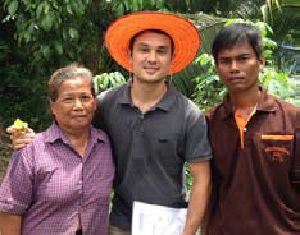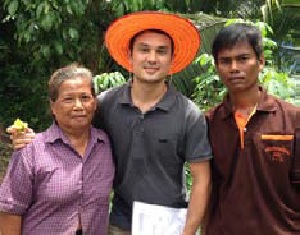 I graduated from GraSPP in 2013, and since then I have been living in Japan. I am originally from Brazil, and after graduating I decided to stay in Japan and try and acquire as much work experience as possible in order to build the foundations of an international career back in my country.
I graduated from GraSPP in 2013, and since then I have been living in Japan. I am originally from Brazil, and after graduating I decided to stay in Japan and try and acquire as much work experience as possible in order to build the foundations of an international career back in my country.
I currently work at NHK World Radio Japan as a translator (English-Portuguese) and announcer. My work mainly involves broadcasting news and cultural programs in Portuguese to audiences in Brazil and Africa.
Working at NHK World enables me to keep myself up-to-date on the latest Japanese and global events.
I also work at Peace Community Plan, a social company engaged in community and environmental activities. Most of our work at Peace Community Plan involves CSR projects sponsored by Japanese corporations or projects that we implement with subsidies from the Japanese government. A project related to this company that I am also engaged in is a series of forums named VISIONS. The forums aim at creating a grassroots platform for the free exchange of ideas among actors involved in promoting disaster resilience in different parts of Asia. Last year, in Bangkok, we gathered around 30 people from countries such as the Philippines, Indonesia, India and Japan to discuss how disaster resilience could be improved all over Asia from the community level. One of the outcomes was the chance to spread apps and other IT tools that can support communities when disasters strike.
Having two different jobs is sometimes challenging, because each place demands a lot of time and energy. However, working at two different places has been a good way to learn about various issues and expand my career network. Since each organization has its own rules and characteristics, by comparing both places I have also learned lessons on how to manage people, how to achieve long-term goals and what strategies are more likely to work.
In the future, I intend to go back to my country and use the lessons I have learned to establish my career in a government or an international organization-related agency.
(from Newsletter No. 40)



